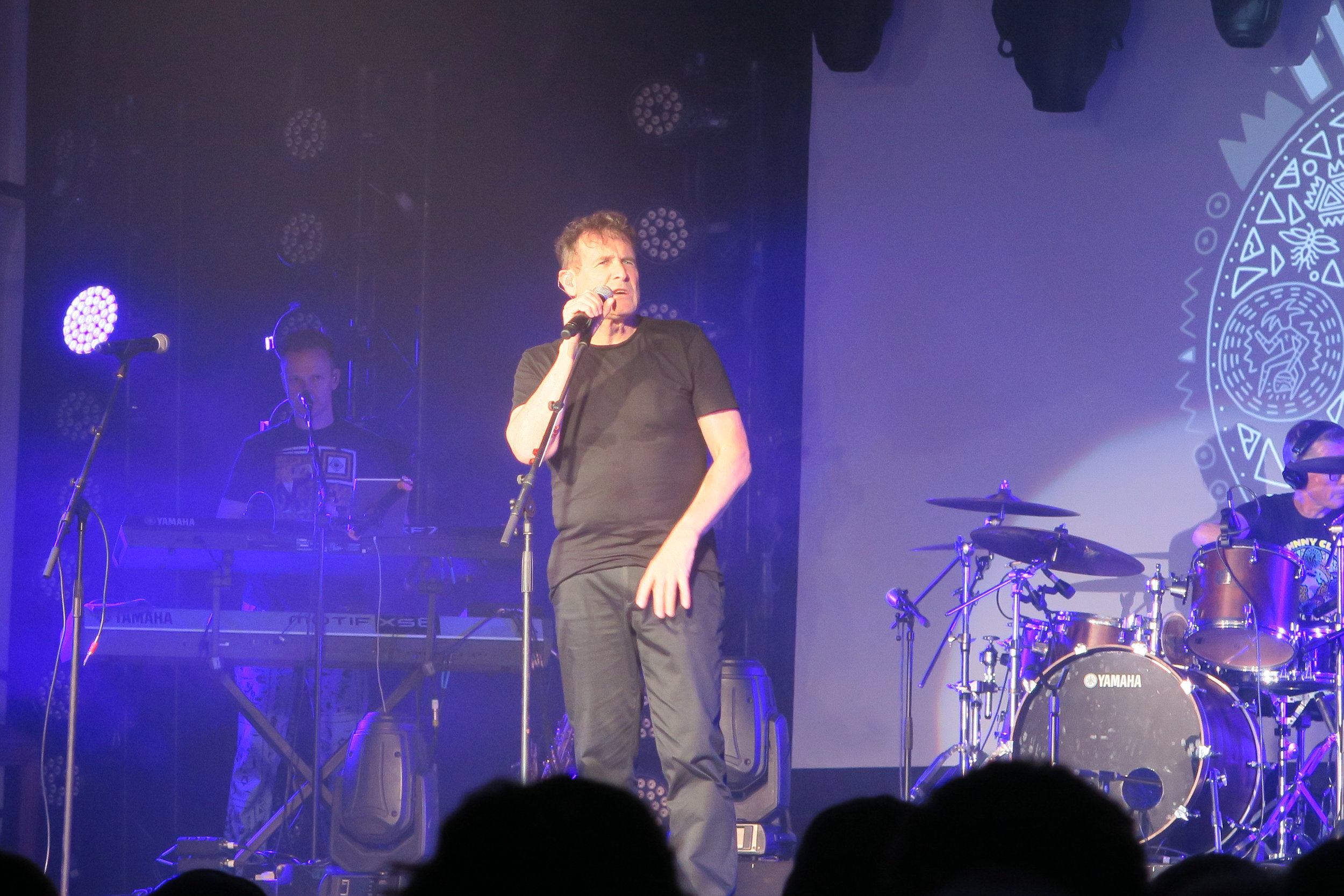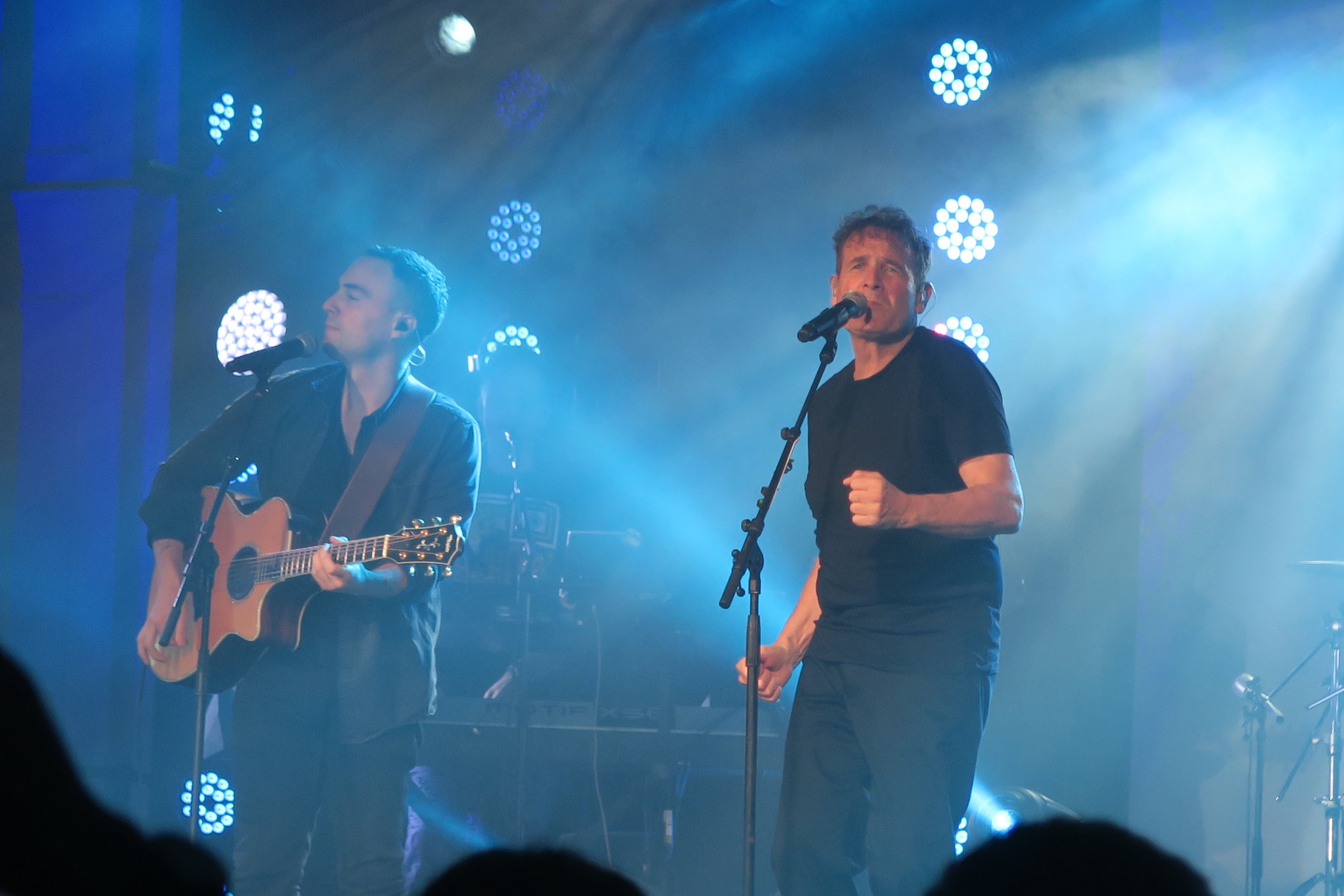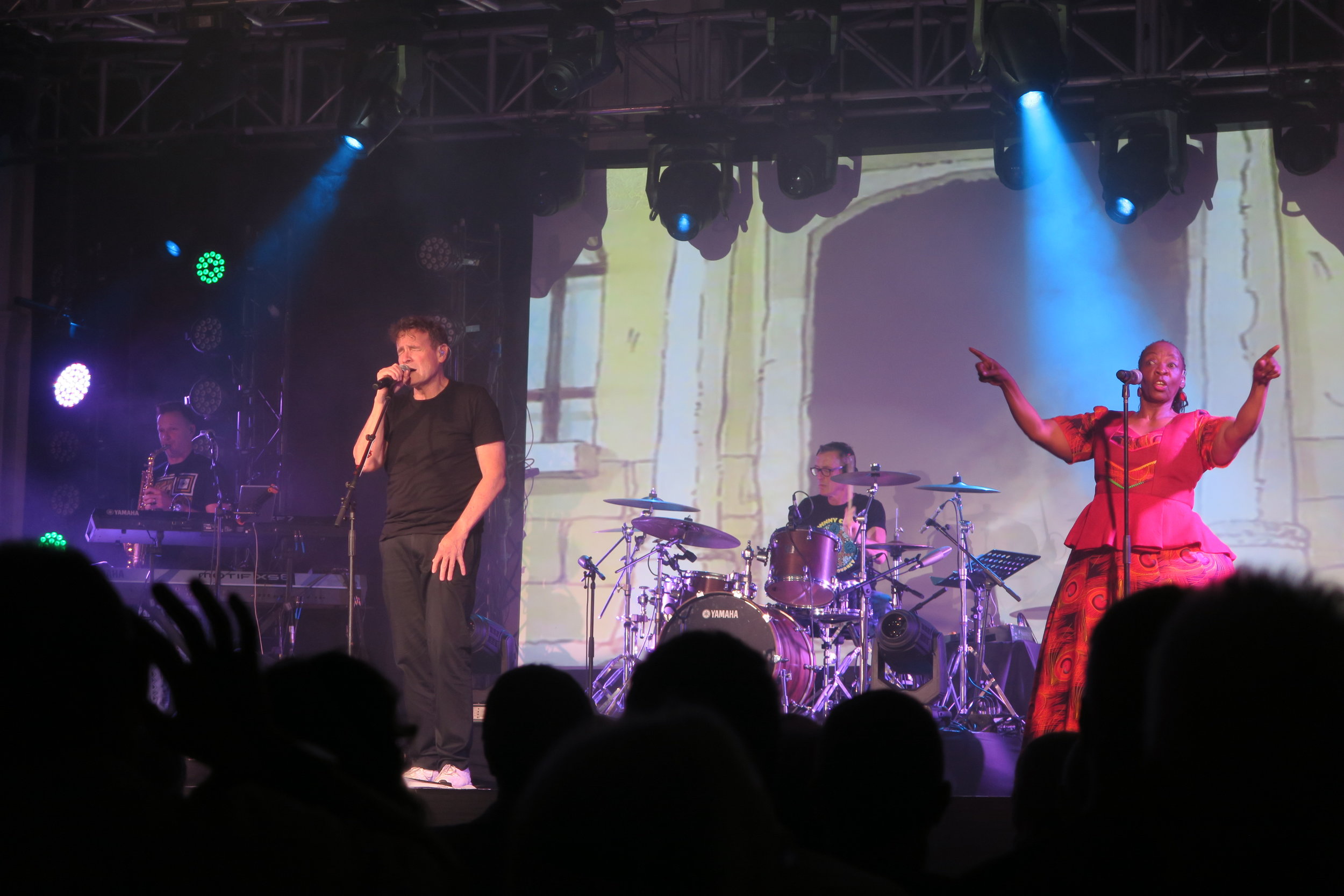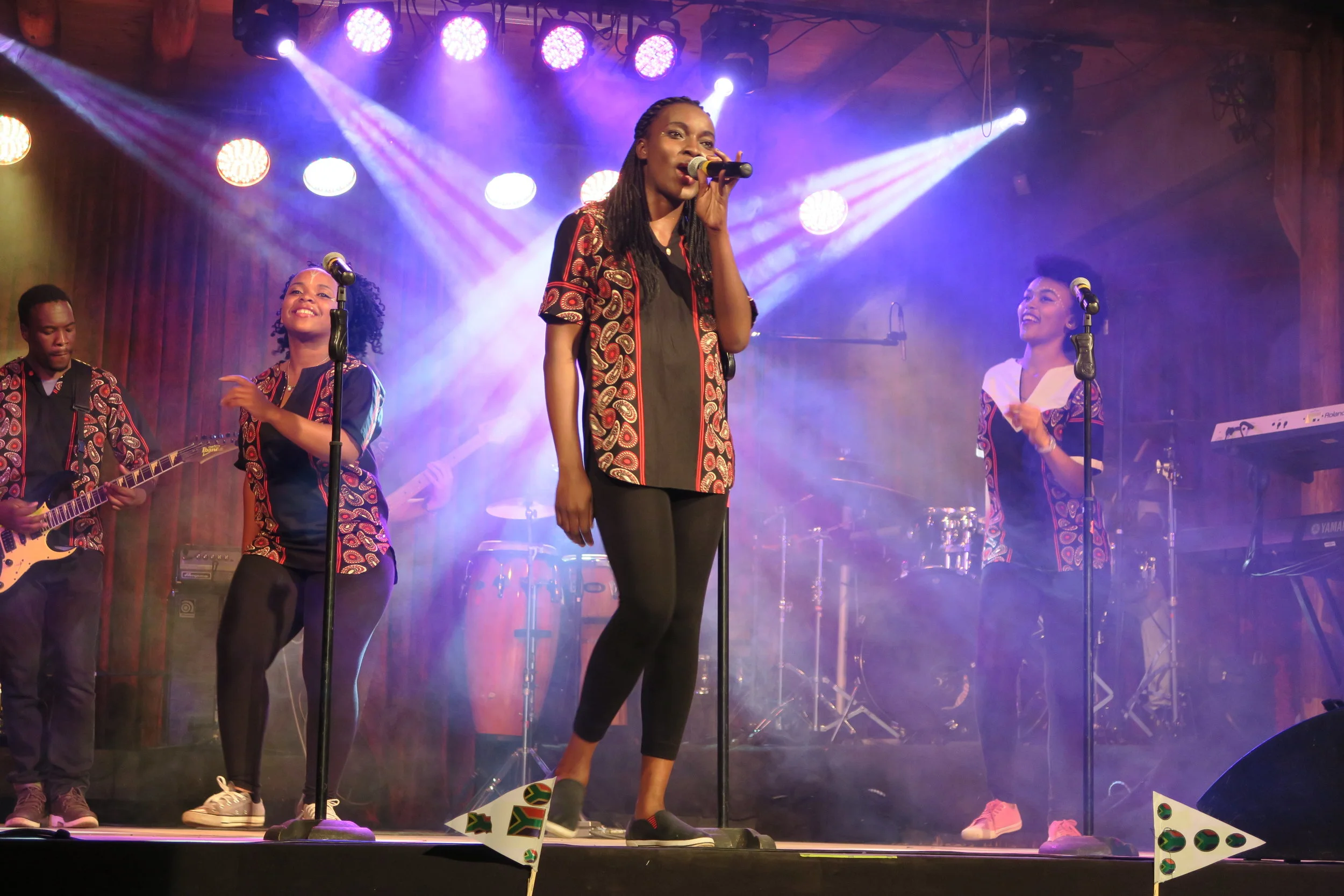Johnny Clegg: the music and the man
There are days when I have so much to write about, I can write nothing at all. After watching Johnny Clegg perform at the extra Saturday matinee concert in Port Elizabeth as part of his The Final Journey tour, I felt impelled and inspired to write something befitting of the South African music icon, his band and his story.
But when I sat down at my desk to explore the extraordinarily emotional experience, I simply had no idea where to start, such was my hope to do it justice.
Perhaps even more than the music of Juluka and Savuka which moved a nation and the world during the height of the apartheid years, and the steady string of solo hits which followed in the democratic era, it was the much-loved Clegg’s storytelling and visual journey which had the audience enthralled. It was almost like watching a summarised version of Clegg’s autobiography; his greatest highs and lowest lows laid bare for all of us to see. And it was incredible.
It may have been the first time I had seen Clegg live on stage, but his music has been with me all through my adult life. In a little university town in the Eastern Cape, the all boys residence across the road had a theme song – if you will – and it was “Impi”.
Wherever they were, be it at a party or sport match, the guys would form a circle and dance and inevitably drop their trousers. Wherever I am, be it at a party or a sport match or, in this case, a Johnny Clegg concert, and “Impi” plays over the speakers, I think of them and those wonderfully-carefree days. I do not, however, lose my trousers.
I was fortunate to go on a short road trip through the south of France with a fellow journo graduate while we were both earning not very much doing temporary work in London. We hired the car to drive through the lavender fields and stopped in the historic cities of Arles and Avignon, ate a lot of dry baguettes and consumed much of the glorious wine that the region is so well-known for.
At one particular vineyard, the woman who did our tasting was rather abrupt and unfriendly, until we told her we were from South Africa. Each time I tell this story, I embellish it a little, but the essence is that she had been a huge fan of Johnny Clegg since her university days, and had danced in the streets to his music on the day Nelson Mandela was released.
She was also most put out that she was unable to attend his concert in Toulouse that very evening. It is an encounter I will never forget, and I so wish I had taken her details and recorded the name of the wine farm that day.
In recent years, I remember watching a video of Johnny Clegg performing “Asimbonanga” in France in 1999, dressed in his black and white patterned jacket. It is a video which could move even the most hardened of human beings. When Madiba himself walked onto the stage, the French crowd went wild.
“There is a particular image which stayed with me; it was the energetic, dancing back-up singer Mandisa Dlanga with her fist raised to the sky. ”
At The Boardwalk in Port Elizabeth that Saturday afternoon, during the encore, Clegg and his band performed “Asimbonanga” with this very video playing on the screens behind them and to the sides of the stage. Dlanga has been part of Clegg's line-up since 1986. She raised her fist in time with the younger version of herself on the video - it was a magical moment.
Clegg’s show was a cleverly-planned work from start to finish; he had long-time friend and Juluka counterpart Sipho Mchunu, who joined the 64-year-old Clegg for “African Sky Blue”; his guitar skills at the fore. Jesse Clegg, an accomplished musician in his own right, made an appearance too to perform the song he wrote for his father and which is set to be the new single. The ushers and audience members were dancing in the aisles to "Great Heart".
A significant portion of Clegg’s Final Journey was dedicated to his inhlangwini dancing partner, Dudu Mntowaziwayo Ndlovu, who was assassinated during the political unrest in KwaZulu Natal in 1992. He was part of Juluka and Savuka, and “The Crossing” was written in his memory.
There were not many dry eyes at The Boardwalk on January 27, 2018, when the images and videos of Clegg and Ndlovu dancing together filled the screens. You could feel the emotion in Clegg’s voice, and you could almost feel it hugging the air.
There is something Clegg said while explaining the art of ‘walking songs’ and playing his adapted concertina; how the cycle of the music comes around and it bumps you forward, and how some people do not necessarily understand the repetition of the same melody over and over.
“It is not the purpose of the song to go anywhere. It’s for you to use the song to go somewhere,” he said, before playing “I call your name”.
He added that the Zulu people always knew that the way you organise rhythm affects the way you experience time.
““Music can be structured to change your sense of the world,” he said, “Rhythm is how you feel time.””
And hasn’t Johnny Clegg done just that? He has altered the South African narrative. And for a couple of hours at The Boardwalk, he made us believe again in the best parts of humanity. What a legend.










